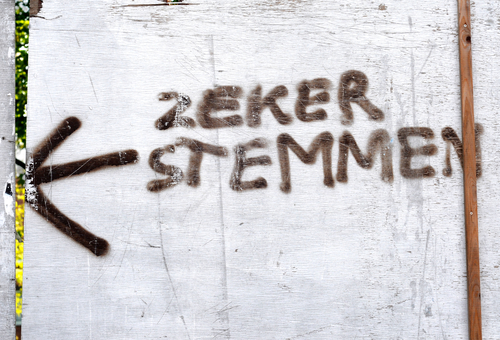The VVD may be leading in the polls, but the March elections are not a run race

 The March elections are not a run race, says columnist Syp Wynia, and the current incumbent Mark Rutte may not last the course.
The March elections are not a run race, says columnist Syp Wynia, and the current incumbent Mark Rutte may not last the course.
As the country is coming out of lockdown, politicians are jostling for position for the next general elections in March, or perhaps sooner if the coalition should fall. Prime ministerMark Rutte looks to be in poll position but more than one politician has fallen at the last hurdle.
At the moment Rutte is not even officially in the race, although all the signs are that he will declare himself a candidate to lead the VVD into the campaign. Last year he failed to capitalise on his chances to bag a top job in Europe and in December he dismissed any discussion about a successor as idle chat. Rutte wants to continue as prime minster, that much is certain.
VVD=Rutte
In the 14 years of his leadership the VVD has become the Rutte party. No VVD politician of any importance from 2006 has remained active, except Stef Blok who is languishing in foreign affairs. And those who oppose Rutte know they will not stand a chance of re-election.
Will he do it and tip CDA prime minister Ruud Lubbers to the post with four terms? It looks like it, for now. Support for the VVD has doubled in the polls to some 45 seats (in the 150 seat parliament) leaving all the other parties standing with between eight and 15.
That trend had already started before the coronavirus crisis struck. The handling of the crisis was definitely not all it should have been, but the population trusted the government and Rutte is reaping the benefits.
But what if it doesn’t last? There are a couple of reasons why it may not. VVD membership has gone down by a third under his leadership and last March the biggest party in the land had to concede defeat to Forum voor Democratie, the smallest party in the lower house of parliament, in last year’s provincial elections.
More than that, the image of decisive leadership during coronavirus crisis will fade once the economic effects become clear by early next year.
Next generations
The situation is much like the one in 2002 when coalition partners PvdA and VVD benefited from the preceding years of prosperity. But in early 2002 that prosperity had evaporated and the euro got the blame. Then came 9/11 and the Muslim reaction made clear that a harmonious multicultural society was an illusion.
The Rutte years have been characterised by austerity measures. More than anywhere else the Dutch paid more in taxes and premiums, depressing disposable income. When the Netherlands no longer had to be the number one budget surplus reducer the next Rutte cabinet decided it should champion the climate. Meanwhile the disposable income of the hardworking and retired Dutch citizen suffered again.
The austerity measures of the first Rutte cabinets must not be repeated now, politicians are saying. But let’s not forget that Rutte, in 2011, was not in favour of immediate cutbacks. Not just yet, he told the Telegraaf, when discussing the budget for 2012.
The same seems to be happening now. At the end of April, the economic damage caused by the coronavirus was already estimated at €100bn. And where earlier crises (euro crisis, climate crisis) had prompted politicians to say it was irresponsible to pass on the consequences on to the next generation, this apparently does not hold for the effects of Covid-19.
Voter annoyance
The belief that the economic crisis can be held off until after the elections is a fond hope which the voters – ever underestimated by The Hague – may not endorse.
People will start to ask themselves if the coronavirus policy was such a big success after all. The elderly and the vulnerable did not get the protection they needed and once businesses go bust at the rate of knots, the image of the long press conferences featuring dependable leaders Mark Rutte and Hugo de Jonge may not endure.
Experiences from the past, as we know, are not a guarantee for the future. But we can learn from them. PvdA leader Wouter Bos was the most popular politicians in 2008 and was even proclaimed ‘man of the year’.
He made himself particularly popular by spending billions on buying or supporting banks – and upping the national debt along the way. But less than a year later the party’s popularity plummeted in the polls. Not much later, he was gone.
It goes to show that decisiveness and popularity – and spending billions – are not a guarantee for re-election.
This is an abridged version of a longer column which appeared on Wynia’s Week
Thank you for donating to DutchNews.nl.
We could not provide the Dutch News service, and keep it free of charge, without the generous support of our readers. Your donations allow us to report on issues you tell us matter, and provide you with a summary of the most important Dutch news each day.
Make a donation